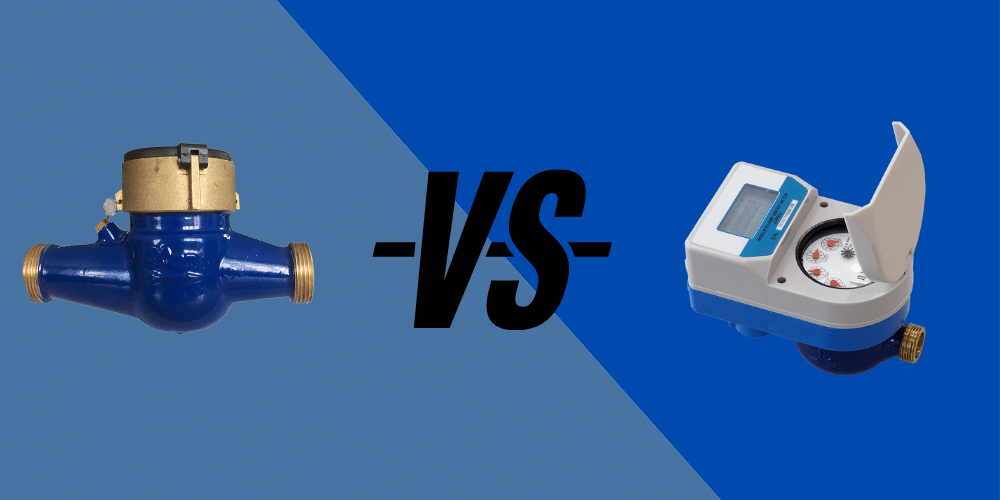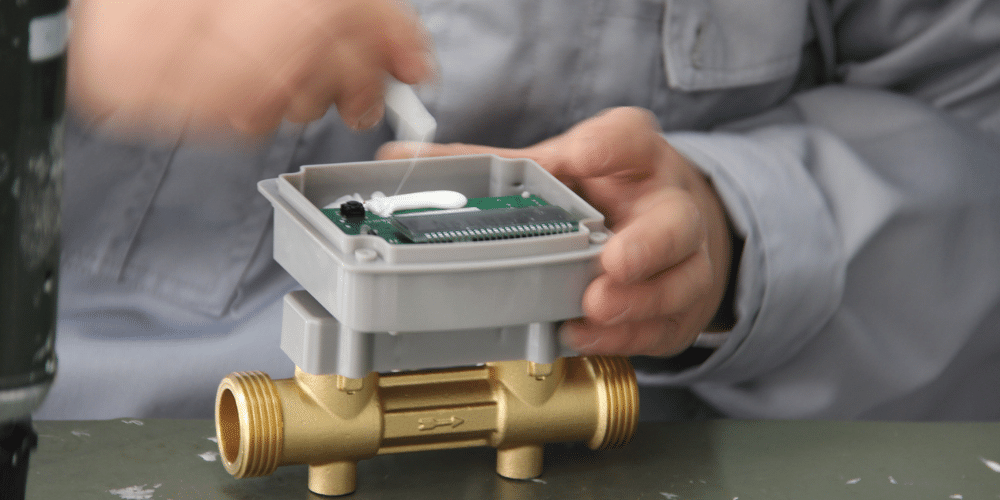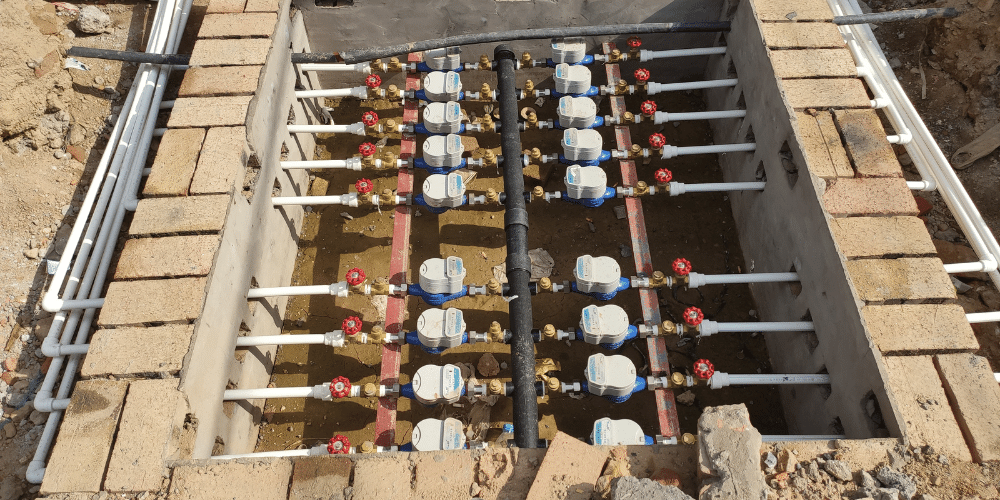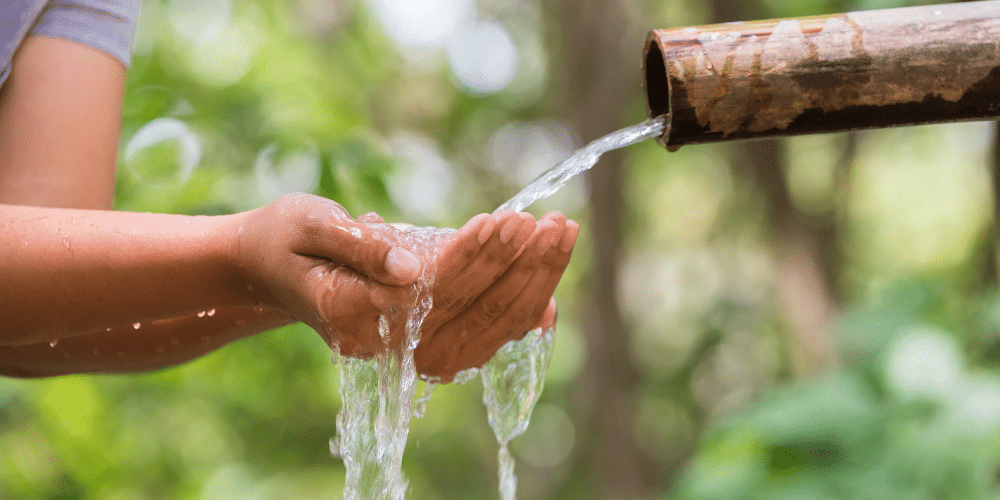How to choose a smart water meter?
Time:2022-11-09
Views:1037

1. How are smart water meters developed?
From the very beginning of the development of mechanical water meters so far, there have been many types of meter terminals, which may have different measurement principles, may not be the same measurement grade, and may have different nominal caliber, of course, there are other levels of difference, such as use, installation direction, temperature, pressure, water immersion and so on. However, it can be generally divided into three evolutionary stages, traditional water meters (or mechanical water meters), smart IC card water meters, and smart water meters.

Smart water meters can monitor, manage, and operate water resources in real-time. At the same time, the development of smart water meters benefits from the progress of intelligent hardware technology. In addition to digital display and remote control functions, smart water meters have greatly increased intelligent analysis, adaptive learning, self-development, and other intelligent functions. This improves the accuracy and efficiency of smart water meters.
Stage 1:Mechanical water meter
The pressure generated by the flow of tap water is used to drive the rotation of the internal gear of the water meter, and the gear under the water meter display disk drives the rotation of the pointer to count, to achieve the purpose of measuring water consumption.
Stage 2: IC card water meter
Using modern microelectronics technology, modern sensing technology, and intelligent IC card technology to measure water consumption and water data transfer and settlement transactions of the new water meter.
Stage 3: Smart water meter
Using the Internet of Things, the meter reader issues a meter reading command through the remote meter reading system, and after receiving the command, the communication module on the water meter uploads the data to the server, and the meter reader can copy the intelligent water meter data.

Smart water meters can monitor, manage, and operate water resources in real-time. At the same time, the development of smart water meters benefits from the progress of intelligent hardware technology. In addition to digital display and remote control functions, smart water meters have greatly increased intelligent analysis, adaptive learning, self-development, and other intelligent functions. This improves the accuracy and efficiency of smart water meters.
With the gradual popularization of smart water meters, water resource management in many cities is developing more intelligently. Over the past five years, many cities in developed countries have introduced smart water meters to address water shortages caused by drought as part of smart city initiatives.
2. why is a smart water meter more and more important?
Under the policy guidance of global energy conservation, environmental protection, and smart infrastructure, and the development of technologies such as the interconnection of everything, automation, and big data analysis, smart water meters are indispensable as the basic perception terminal of smart water and smart cities.


Smart meters enable utilities to automatically collect data on water consumption, improve efficiency, eliminate manual meter readings, and save costs. Smart water meter systems rely on wired and wireless communication technologies to connect local or wide area networks, enabling remote location monitoring and infrastructure maintenance through leak detection. The wide application of smart water meters for enterprises and society creates considerable economic benefits and social benefits.
3. Two advantages of smart water meter compared with mechanical water meter.


● Help you save money
Accurate measurement-smart water meters can accurately measure water consumption and avoid excessive charges caused by estimation or meter reading errors.
Water use analysis-Through the data display of smart water meters, users can adjust their water consumption habits and reduce unnecessary water consumption, thereby saving water bills.
Leak monitoring- smart water meters can quickly detect problems such as pipe leaks, which users can fix in a timely way to avoid high water bills caused by leaks that go unnoticed for a long time.
● Comprehensive features
Automatic meter reading function - can achieve the dual function of mechanical counting and electronic reading of water consumption, while having the function of water data storage and support remote transmission.
Pre-payment function - set water quota, arrearage water and automatically complete the calculation of the ladder water price, which solves the problem of difficult water charges.
Self-protection function - Fully sealed design, with three functions: waterproof, leak-proof, anti-attack, can better achieve more proof and anti-freezing, and anti-attack function, when the water meter is attacked by external strong magnetic or strong electric, the water meter will automatically close the valve.

4. How to choose a smart water meter?

- Accurate water demand assessment
When choosing a smart water meter, the first consideration is an accurate water demand assessment. Understanding the daily water use of a home or business, including peak and valley water periods, flow intensity, etc., helps to choose a water meter with the right level of accuracy to ensure that the actual water needs are met.
- Communication methods adapted to the existing system
The communication mode of a smart water meter affects its data transmission efficiency and stability. When purchasing, it is important to consider the communication method that ADAPTS to the existing system, such as NB-IoT, LoRa, or GPRS, to ensure that the water meter works in collaboration with other devices or platforms to achieve intelligent water resource management.
- Enhanced functional requirements
Select the appropriate function configuration based on the actual requirements. For general home users, the basic smart water meter may be sufficient, while for industrial or large commercial uses, additional features such as leak detection, remote control, etc. may be required to improve the comprehensiveness and convenience of water management.
- Stability and durability of the product
It is also important to consider the stability and durability of the product. Choose well-known brands or experienced suppliers to ensure that the water meter can operate stably under various environmental conditions, and has certain anti-interference and protection capabilities to extend its service life.
- Comprehensive cost-benefit analysis
When buying a smart water meter, a comprehensive cost-benefit analysis cannot be ignored. In addition to the initial investment costs, there are also long-term usage, maintenance and data services costs to consider.
5. What are the different functions of smart water meters with different communication methods?
6. What are the precautions when using smart water meters?
| LORA | LORAWAN | GPRS | NB-IOT | |
| Frequency band |
470-510Mhz 865-868Mhz (Can be customized) |
US902-928:American (Can be customized) |
GSM850/EGSM900 (Can be customized) |
B3/B5/B8/B20/B28 (Can be customized) |
|
Composition |
Lora water meter |
Lorawan water meter Concentrator/Gateway Serve Platform |
GPRS water meter Base station Serve Platform |
NB-IOT water meter Base station Serve Platform |
| Software | Cloudy serve platform | Cloudy serve platform | Cloudy serve platform | Cloudy serve platform |
| Softare Data Integrate | √ | √ | √ | √ |
| Purchase necessary supporting equipment for samples | Water meter Concentrator | Water meter Gateway |
Water meter | Water meter |
| Battery life | More than 6 years | More than 6 years | More than 6 years | More than 6 years |
| Software Charge | Free | Free | Free | Free |
| Additional Cost | × | × | × | × |
| Advantages | Low power consumption, long distance communication, quick response, high security | Low power, long range communication, standard communication protocol | Suitable for intermittent, small amount of data transmission;Long transmission distance;The most common | Low cost, low bandwidth, low rate, stable connection, wide communication range |
| Limitations | The use of private communication protocols, a high degree of customization, can only apply a single transmission product, need to lay a separate gateway (lora concentrator) | Real-time communication is not possible | High power consumption, unable to real-time transmission, high cost of communication | No real-time communication can only upload time, service costs are high |
6. What are the precautions when using smart water meters?

Installation location selection: Ensure that the smart water meter is installed in an easily accessible and observable location so that water usage can be monitored at all times. At the same time, ensure that the installation location is not subject to serious physical damage or environmental impact.
Keep it clean: Clean the smart water meter and its surroundings regularly to ensure its normal operation. Avoid accumulation of dust or debris on the surface of the water meter, which may affect the accuracy of the sensor.
Avoid physical damage: Avoid placing heavy objects around smart water meters or performing activities that are potentially damaging, such as construction work. Physical damage may result in inaccurate meter data or damaged equipment.
Regular check: Check the operation of the smart water meter regularly, including ensuring that the reading is accurate and the sensor is working properly. If any abnormal situation is found, contact the relevant maintenance personnel for handling.
Protect privacy: Smart water meters may record a user‘s water usage, so you need to ensure that this data is secure and private. Comply with relevant privacy policies and laws and regulations to ensure that water meter data is not accessed or used by unauthorized persons.
Save water: Use the real-time data provided by smart water meters to take measures to save water, such as fixing leaks, rationally scheduling water use, etc., to reduce waste and reduce water bills.
Avoid interference: Try to avoid placing equipment around the smart water meter that may interfere with its normal operation, such as strong electrical appliances or wireless signal sources.
Regular maintenance: According to the recommendations provided by the manufacturer or supplier, regular maintenance and maintenance of the smart water meter to ensure its long-term stable operation.
7. How to choose a smart water meter supplier?
- Technical capability: The supplier should have advanced Internet of Things technology and R & D capability of remote water meter to provide stable and reliable remote water meter products and solutions.
- Product quality: The supplier shall ensure that the quality of the remote water meter products meets the relevant standards and regulations, has the characteristics of long life, high precision, low energy consumption, etc., and can operate normally under various environmental conditions.
- Data security: The supplier shall take effective security measures to ensure the safe transmission and storage of remote water meter data, prevent data leakage and tampering, and protect user privacy.
- Communication stability: The supplier shall provide a stable and reliable communication network to ensure unimpeded data transmission between the remote water meter and the data center to avoid data loss or delay.
- Remote management capability: the supplier shall provide a remote management platform or software to facilitate users to carry out real-time monitoring, remote meter reading, troubleshooting and other operations to improve management efficiency.
- After-sales service: Suppliers shall provide timely and effective after-sales service, including technical support, troubleshooting, maintenance, etc., to ensure that users can get timely help and solve problems in the process of use.
- Compliance requirements: Suppliers shall comply with relevant laws, regulations and standards, including product certification, environmental protection, intellectual property and other aspects of compliance.
- Cost-effectiveness: Suppliers should provide competitive prices and reasonable cost structures to ensure that the procurement and use costs of far transmission water meters are within a reasonable range.

Therefore, smart water meter suppliers need to meet customer needs in terms of technical capabilities, product quality, data security, communication stability, remote management capabilities, after-sales service, compliance requirements and cost-effectiveness, and be consistent with relevant laws and regulations.








